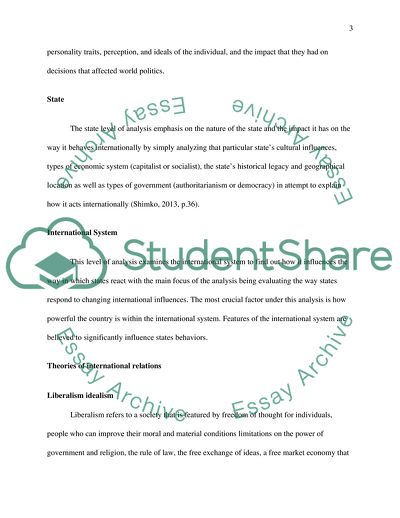Cite this document
(International Relation Theories Report Example | Topics and Well Written Essays - 2000 words, n.d.)
International Relation Theories Report Example | Topics and Well Written Essays - 2000 words. https://studentshare.org/politics/1832419-international-relations-theories-and-level-of-analysis
International Relation Theories Report Example | Topics and Well Written Essays - 2000 words. https://studentshare.org/politics/1832419-international-relations-theories-and-level-of-analysis
(International Relation Theories Report Example | Topics and Well Written Essays - 2000 Words)
International Relation Theories Report Example | Topics and Well Written Essays - 2000 Words. https://studentshare.org/politics/1832419-international-relations-theories-and-level-of-analysis.
International Relation Theories Report Example | Topics and Well Written Essays - 2000 Words. https://studentshare.org/politics/1832419-international-relations-theories-and-level-of-analysis.
“International Relation Theories Report Example | Topics and Well Written Essays - 2000 Words”. https://studentshare.org/politics/1832419-international-relations-theories-and-level-of-analysis.


